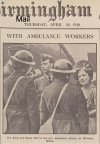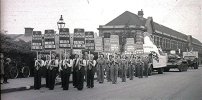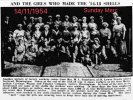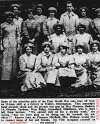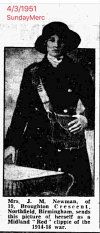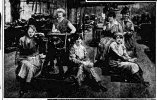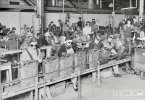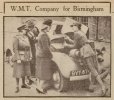Pedrocut
Master Barmmie
Worth a mention that the Forum has a short thread on Women’s contribution here...
 birminghamhistory.co.uk
birminghamhistory.co.uk
Women’s contribution to WW1
Women played a key role on the homefront and abroad during WW1. Lets remember your female ancestors here. Here’s a taster of how this progressed during and after WW1. Viv. July 1918 Women workers rally July 1918 1915 December 1918
 birminghamhistory.co.uk
birminghamhistory.co.uk


